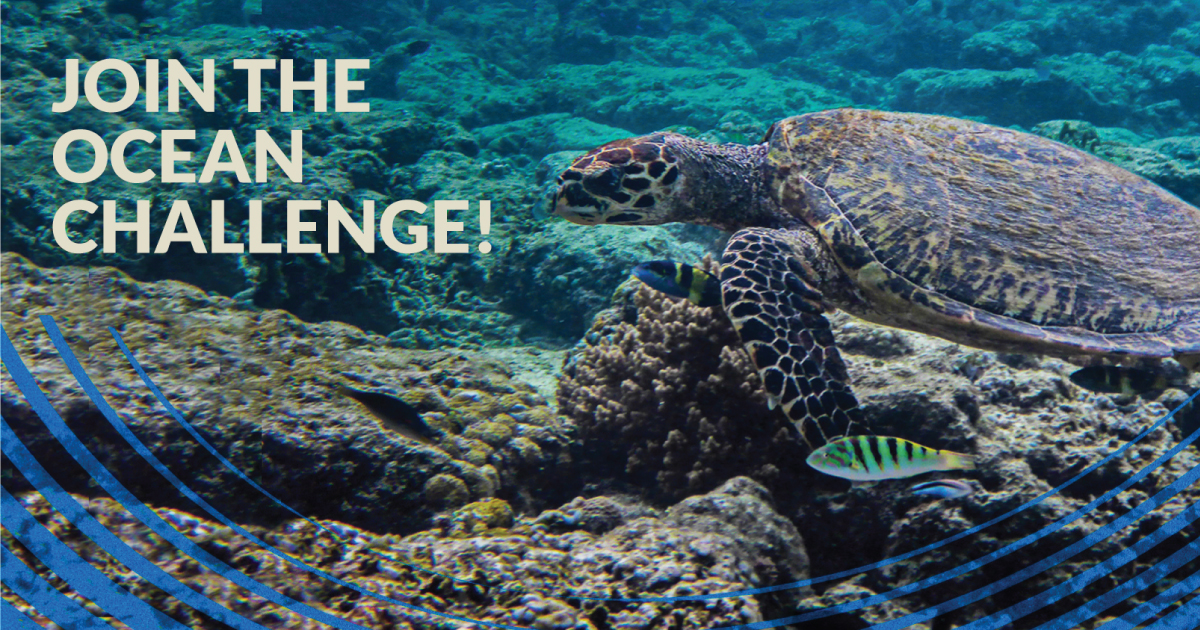
07 Jun World Oceans Day 2022: Revitalization – Collective Action for the Ocean
The call for collective action on this World Oceans Day 2022 seeks to revitalize our oceans and our efforts for their protection. This implies the articulation of citizens, academia, government, the business sector, and other organizations that work for the wellbeing and sustainable use of the world’s oceans.
50 years ago, in June 1972, the United Nations Conference on the Human Environment was held in Stockholm, marking a turning point in collective action for the environment. It is considered the birthplace of environmental governance.
But, why haven’t we seen more progress in the protection of our oceans in the last five decades?
Scientific research and the media tell us that in the year 2050 there will be more plastic than fish in the oceans, trash islands already exist, the over-exploitation of fishery resources is putting some species on the edge of extinction, acidification is destroying sensitive and biodiversity-rich ecosystems like coral reefs, and the capacity of the ocean itself to regulate the global climate has been altered. Sadly, the list goes on and on…
It seems we are currently living the “inevitable” destruction of our oceans as posited by the so-called “Tragedy of the Commons”. Our oceans are a perfect example of the dilemma that emerges around these limited, shared resources. According to the concept, different actors motivated by their personal interests and acting rationally and independently, take advantage of the commons until they are destroyed, even though it is not in the interest of any of the actors that this destruction occurs.
However, are we really in a situation with no way out?
Collective governance has become the best weapon in the fight to avoid said destruction, although that is not to say it is an easy path. Governance processes imply the need to reach mutual agreements that take into account the interests, objectives, and worldviews of a wide range of different actors. In the 21st century, governance represents to some degree the human tendency for self-organization that has been seen for milenia.
Today, the Sustainable Development Goals of the UN offer a general and comprehensive framework within which everything related to the environmental, social, and economic governance of the oceans should be developed and implemented. Achieving SDG 14: Conserve and sustainably use the oceans, seas and marine resources, brings many benefits for the other SDGs, and vice-versa.
In a formal sense, the governance of the oceans involves formal rules and institutions, evidence- and knowledge-based decision making, the commitment and participation of stakeholders, and the empowerment of communities.
But, beyond this definition, we highlight the fact that every action in favor of the wellbeing and revitalization of our oceans can be considered as a part of their governance.
For years, both some governments and other actors have refused to take the measures necessary to mitigate and fight against the environmental changes and damages in our oceans: sometimes because they did not believe in the scientific evidence of their causes and impacts, and sometimes because they considered the proposed solutions to be too expensive or in conflict with other interests. Denying existing solutions, or affirming that their implementation is not viable -for example, economic reforms, renewable energies, cleaner fuels, more efficient homes and automobiles, the trend of FAIR and open data, among many others- is one of the greatest challenges that those of us who work for the oceans face today. Education, innovation and network-building are our best allies in the revitalization of the oceans.
Therefore, our message on this World Oceans Day 2022 is that the solutions exist, they are increasingly feasible, and we can all contribute to their realization. At CEMarin, we are convinced that there are also a multitude of actions that each of us can implement in our daily lives. We should never forget that as professionals, students, consumers, voters, and members of communities and civil society, we can all undertake actions in any area of our lives to help our oceans, even if we are far from coastal and insular territories.
For this reason, we invite you to join our campaign Every Action Counts through our social networks. We want to know what actions you do in your daily lives and in your research activities to care for the oceans, with the official hashtag of the UN #revitalizetheocean and the hashtag of our campaign #everyactioncounts.
Join us in this call for collective action so that the solutions we need will never again remain on paper only, but instead that the revitalization of our oceans becomes a reality!


